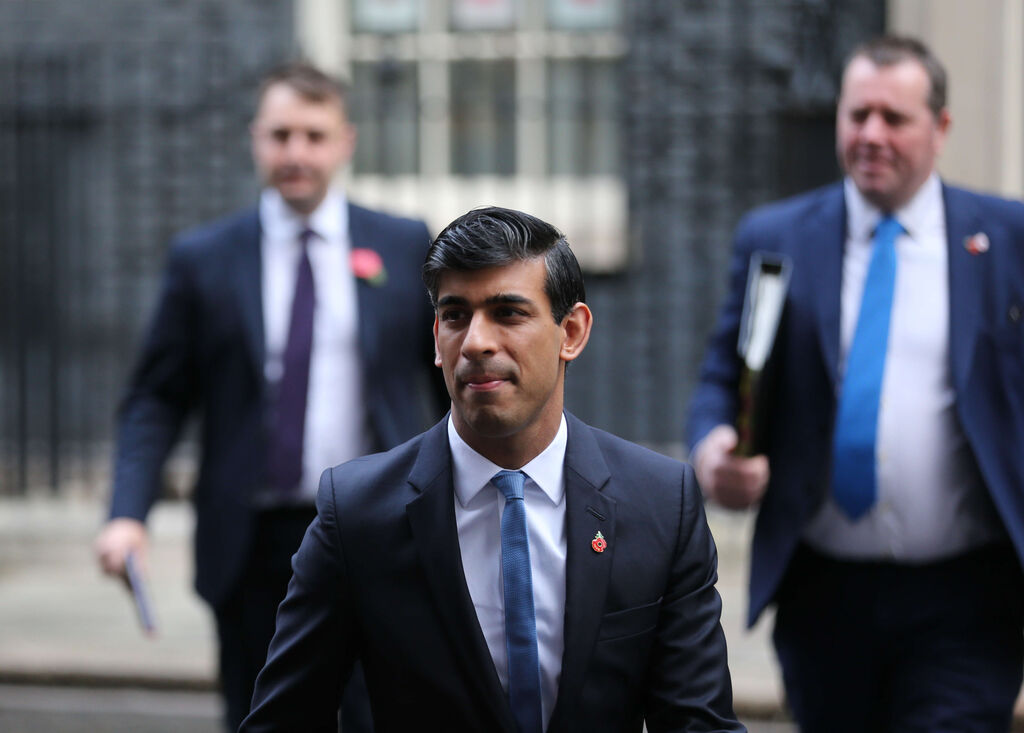What should we make of the Conservative Party Conference?

Over the years I have attended more than my fair share of political conferences. Last night I started counting how many, and I estimate that it will have been around 40.
With such a sample you can begin to build common themes, and once again this year I am looking for the Parties’ visions, their policies and their plans and how those might reflect good stewardship and seek the welfare of all people, including protecting the vulnerable, weak and marginalised. And I am looking for leaders who seek to realise their goals through unity, not division.
In using this as a framework to assess the Conservative Party conference there are two things to note.
First, what follows is my personal assessment. I am assessing events through the lens of my evangelical Chrisitan theology and from biblical principles that I seek to live out with integrity. But my observations are just that – what I have observed, being, this year, outside the conference bubble, albeit informed by conversations with colleagues and friends who were on the inside.
My perception might be different to yours. If it is, reflecting on how and why it is, is, in itself, an important discipline for each of us in seeking to discern God’s heart, not our own, on these matters.
Second, I need to remember that no Party is perfect nor intrinsically ‘Christian’. Political parties are broad coalitions. There will be diversity of opinion within a church, so how much more should we expect a diversity of worldview as well as opinion within each political party?
There may be one party who appeals to our personal priorities and passions more than others; a party that we feel reflects and expresses biblical principles more than the others; a local candidate or national leader who is, in our opinion, better at reflecting biblical values than others.
Yet we should not forget that there will probably be elements in most if not all political parties that we can support, and many things that we should disagree with or are uncomfortable with.
I have often challenged others who feel very comfortable in the Party they support as to whether their politics is shaping their faith rather than the other way around. If we do have a political ‘home’, we should never mistake it or equate it with our ultimate home. We should never allow hope in a political leader, Party or movement to supersede our gospel hope.
It is helpful when assessing and reflecting on politicians and parties to dwell on our own biblical convictions first.
With these things in mind, let me briefly share my reflections on the Conservative Party conference this week.
Longing for a vision
The wonderful and dangerous thing about the gospel is that it provides a vision for the whole of life. It explains our past, helps us understand the present and gives us a vision for the future. Much of politics is a pale shadow of this: the current Conservative Party leadership is not unique in that sense!
What I felt I was being sold this week was: “the past wasn’t great, but trust that we are different, and that we will change things in a way that will make things (a bit) better (by which we mean mainly economically) now and in the future.”
This premise was based on a government that is competent and pragmatic.
My question to all the main parties right now is this: when did mere competency become the aspiration, let alone visionary?
Surely integrity and competency are the foundations of public leadership, not its pinnacle. Having a capable government is good and valuable, but I am looking for so much more.
Sitting on the outside of the conference bubble, I cannot see what the vision is for our society and nation?
I do see plans to deliver greater micro and macro-economic prosperity. But although Biblical prosperity is not less than economic wellbeing, it is a lot more, and the Bible does not define flourishing as simply an individual’s financial affluence.
Sadly, this might equally be a criticism I could make in a week’s time about the Labour Party Conference (and indeed, all the main UK parties!) as we enter an election year.
Truly progressive policies
What was more encouraging this week, however, was the willingness to talk about family and social issues like gender identity, where some cultural trends and popular assumptions do need to be challenged.
We have to be able to talk about gender in a way that respects the need to protect any group from discrimination, marginalisation, and attack. But on any issue, we also have to balance protection and respect with being able to challenge beliefs and assumptions that we disagree with or that are demonstrably wrong and harmful.
There are many areas where it is not progressive - in the sense of helping us progress to a better place - to simply agree with the loudest voice or strongest opinion.
That is certainly the case in relation to policies that promote the family, and so I welcomed news of events like that of the New Conservatives who discussed how families could be better supported, and how our taxation system often hinders family life.
If there is space to discuss how we support families, I do hope that will include balancing our care for the environment with safe and affordable housing, and other areas critical to the cost of living crisis, alongside the Prime Minister’s proposals for widening educational attainment.
The risks of aggressive rhetoric
One of the risks of addressing big problems that are complex and sensitive is that we do so in a way that creates division and conflict, which in turn makes solving the problem in question less, not more likely.
So, we do need to talk about immigration and those who are put on small boats and exploited by people traffickers; we do need to talk about educational attainment; we do need to talk about the role of the state in protecting us from harmful behaviours such as smoking.
But we also need to talk about how we talk about these issues. Too often the rhetoric used can be, in my view, misleading, dangerous, and simplistic.
Again, this is not a problem limited to any one party or politician. And I am not suggesting that we need to couch everything in weak language and seek weak solutions. Jesus’ teaching that we turn the other cheek when provoked or attacked was not a direction to be passive or a door mat!
But we should not seek out division for political gain; we should never suggest that complex problems have a simple cause (or solution) when they demonstrably do not; we should never diminish or disrespect those with whom we disagree.
Unfortunately, this conference season has seen language that does not acknowledge the extent and power of some of the problems we face and, as a result, underestimates what it will take to bring healing and hope, let alone the limitations of what we are able to promise and achieve.
Looking ahead
The nature of debate in the public square is one that I have written about before, and I fear will be something I write about much more as we approach a General Election next year.
And it is the General Election that casts a shadow over all the Party conferences this year, with groups outside the main government hall also seeking to influence the next manifesto and life on the other side of the election. The same will be true at the Labour Conference, as it was for the Lib Dem Conference which has already occurred.
There will be elements in each conference week that we can support, and other elements which we should challenge.
Party conferences, like political debates in general, can seem as if they are taking place in a bubble, where we are on the outside.
But our God has given us a mandate and a job description to be culture makers and to participate in these debates with confidence. Rather than standing on the sidelines, it is our responsibility to burst the bubble by speaking His better story into a broken world and presenting to the world a real vision: a vision of a renewed politics that transforms people’s lives.






